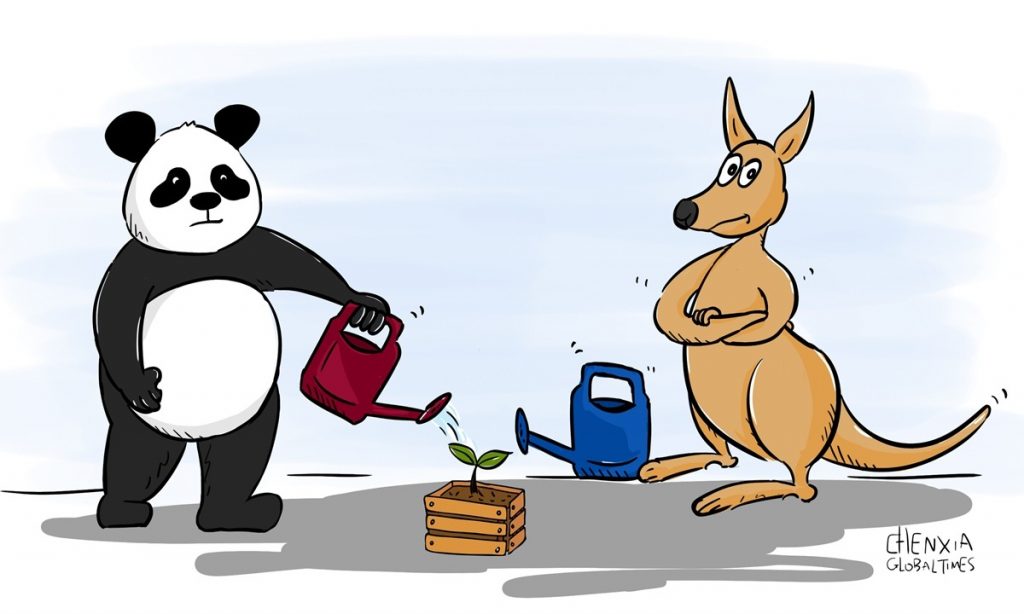
Although the Foreign Investment Review Board and Treasury have endorsed the deal, Aussie Treasurer Josh Frydenberg, who has the final say, had no plans to agree to the sale, a decision that involved “diplomatic issues,” local Australian Financial Review reported, citing an unnamed source.
The news came after China’s Ministry of Commerce on Tuesday announced an anti-dumping probe into wine imports from Australia, which is a normal investigation.
Market concerns have been raised recently as China-Australia relations intensify and disputes emerge during the past few months. Per a Guardian report, Australian farmers have called on the Morrison government to “nurture” its trading relationship with China.
Their comments were not the first time that Aussie industries have called on the local government to restore relations with the nation’s largest trade partner. Although the overall trade situation between the two countries remains robust upon profound economic complementarities, one dispute could bring devastated impacts on certain industries.
Australia’s National Farmers Federation said in a statement that almost 30 percent of Australia’s total agricultural exports head to China; therefore, it is an extremely important and valuable market for Australian farmers.
As for China’s investment in Australia, after several years of positive growth, it has seen a drastic drop from about A$10 billion in 2017 to A$3.5 billion in 2019, which does not leave much room for further decline. The reasons behind this drop include Australia’s particular care for its domestic brands, and increasingly vigilance toward Chinese capital, which is due to Canberra’s protectionism and obstacles that have emerged out of conflicts of interest between US capital and Chinese capital in the Australian market.
Mutual investment between Australia and the US was reportedly worth more than A$1.8 trillion in 2019, and the US’ investment accounted for about 25 percent of the total foreign investment in Australia. Nearly every rosy Australian industry involves capital from the US, meaning that capital from other foreign countries often takes a back seat and could threat the interest of US capital.
Alongside the escalation of China-US tensions, Canberra has started to heighten its scrutiny toward Chinese capital. According to data from the University of Sydney, Chinese investment in Australia fell 58 percent year-on-year in 2019. The figure may continue go down.
Against the backdrop of the gloomy global economic situation, China has been ramping up efforts to reboot its economic growth, and has no willingness to initiate or involve itself in any trade conflicts. Per IMF estimates, China may be the only major economy that gains positive growth this year amid the COVID-19 pandemic, while Australia’s GDP could see a contraction of up to 4.5 percent.
As a country which has harvested interest from China’s decades of rapid growth, it is suggested that Canberra should seize the opportunity of China being a leading force in the global economic recovery in the post-pandemic era. If the country could shun further pressure from the US, it is expected that the Morrison government would not take further aggressive moves to shatter economic ties with China.

























